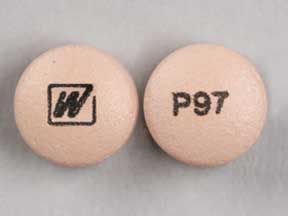Primaquine
Generic name: primaquine [ PRIM-a-kwin ]
Dosage form: oral tablet (15 mg)
Drug class: Antimalarial quinolines
What is primaquine?
Primaquine is a medication to treat or prevent malaria, a disease caused by parasites. primaquine works by interfering with the growth of parasites in the body.
Parasites that cause malaria typically enter the body through the bite of a mosquito. Malaria is common in areas such as Africa, South America, and Southern Asia.
Vivax malaria is a form of malaria in which parasites travel from the bloodstream into other cells and tissues of the body. This can cause a second infection (relapse) to occur.
Primaquine is used to prevent malaria from coming back in people who have been infected with the vivax form of this disease.
Primaquine may also be used for purposes not listed in this medication guide.
Primaquine side effects
Get emergency medical help if you have signs of an allergic reaction: hives; difficult breathing; swelling of your face, lips, tongue, or throat.
Stop taking primaquine and call your doctor at once if you have:
-
dark colored urine;
-
pale or yellowed skin; or
-
confusion or weakness.
Common side effects of primaquine may include:
This is not a complete list of side effects and others may occur. Call your doctor for medical advice about side effects. You may report side effects to FDA at 1-800-FDA-1088.
Related/similar drugs
Warnings
You should not use primaquine if you have an autoimmune disorder, such as lupus or rheumatoid arthritis, or if you also use quinacrine (Atabrine).
Before taking this medicine
You should not use primaquine if you are allergic to it, or if:
-
you have an autoimmune disorder, such as lupus or rheumatoid arthritis; or
-
you are pregnant or may become pregnant; or
-
you have recently used another malaria medicine called quinacrine or Atabrine.
To make sure primaquine is safe for you, tell your doctor if you have:
-
a genetic enzyme deficiency called glucose-6-phosphate dehydrogenase (G6PD) deficiency;
-
heart disease, heart rhythm disorder (including slow heartbeats);
-
an electrolyte imbalance (such as low levels of potassium or magnesium in your blood);
-
a personal or family history of becoming ill after eating fava beans; or
-
if you are of a certain ethnic background (Southern Europe, Mediterranean, Middle Eastern, African, Southeast Asian, Oceanic).
Primaquine can harm an unborn baby. Use effective birth control to prevent pregnancy while you are using primaquine, whether you are a man or a woman. Men should use condoms. Primaquine use by either parent may cause birth defects.
If you are a woman, keep using birth control after you stop taking primaquine, until you have at least one menstrual period. If you are a man, keep using condoms for at least 3 months after your last dose. Tell your doctor right away if a pregnancy occurs while either the mother or the father is using primaquine.
It is not known whether primaquine passes into breast milk or if it could affect the nursing baby. Tell your doctor if you are breast-feeding.
How should I take primaquine?
Follow all directions on your prescription label. Do not take this medicine in larger or smaller amounts or for longer than recommended.
The usual dose of primaquine is 1 tablet daily for 14 days.
Take primaquine for the entire length of time prescribed by your doctor. If you are taking this medicine to treat malaria, your symptoms may get better before the infection is completely treated.
Talk to your doctor if you stop taking this medicine early for any reason.
No medicine is 100% effective in treating or preventing malaria. For best results, keep taking primaquine as directed.
Contact your doctor as soon as possible if you have been exposed to malaria, or if you have fever or other symptoms of illness during or after a stay in an area where malaria is common.
In addition to taking primaquine, use protective clothing, insect repellents, and mosquito netting around your bed to further prevent mosquito bites that could cause malaria.
Store at room temperature away from moisture and heat.
What happens if I miss a dose?
Take the missed dose as soon as you remember. Skip the missed dose if it is almost time for your next scheduled dose. Do not take extra medicine to make up the missed dose.
What happens if I overdose?
Seek emergency medical attention or call the Poison Help line at 1-800-222-1222.
Overdose symptoms may include vomiting, heartburn, stomach cramps, weakness, pale skin, and blue lips or fingernails.
What should I avoid while taking primaquine?
primaquine may cause blurred vision and may impair your thinking or reactions. Be careful if you drive or do anything that requires you to be alert and able to see clearly.
What other drugs will affect primaquine?
Primaquine can cause a serious heart problem, especially if you use certain medicines at the same time, including antibiotics, antidepressants, heart rhythm medicine, antipsychotic medicines, and medicines to treat cancer, malaria, HIV or AIDS. Tell your doctor about all medicines you use, and those you start or stop using during your treatment with primaquine.
This list is not complete. Other drugs may interact with primaquine, including prescription and over-the-counter medicines, vitamins, and herbal products. Not all possible interactions are listed in this medication guide.
More about primaquine
- Check interactions
- Compare alternatives
- Pricing & coupons
- Drug images
- Side effects
- Dosage information
- During pregnancy
- Drug class: antimalarial quinolines
- Breastfeeding
- En español
Patient resources
Professional resources
Related treatment guides
Further information
Remember, keep this and all other medicines out of the reach of children, never share your medicines with others, and use this medication only for the indication prescribed.
Always consult your healthcare provider to ensure the information displayed on this page applies to your personal circumstances.
Copyright 1996-2025 Cerner Multum, Inc. Version: 6.01.

